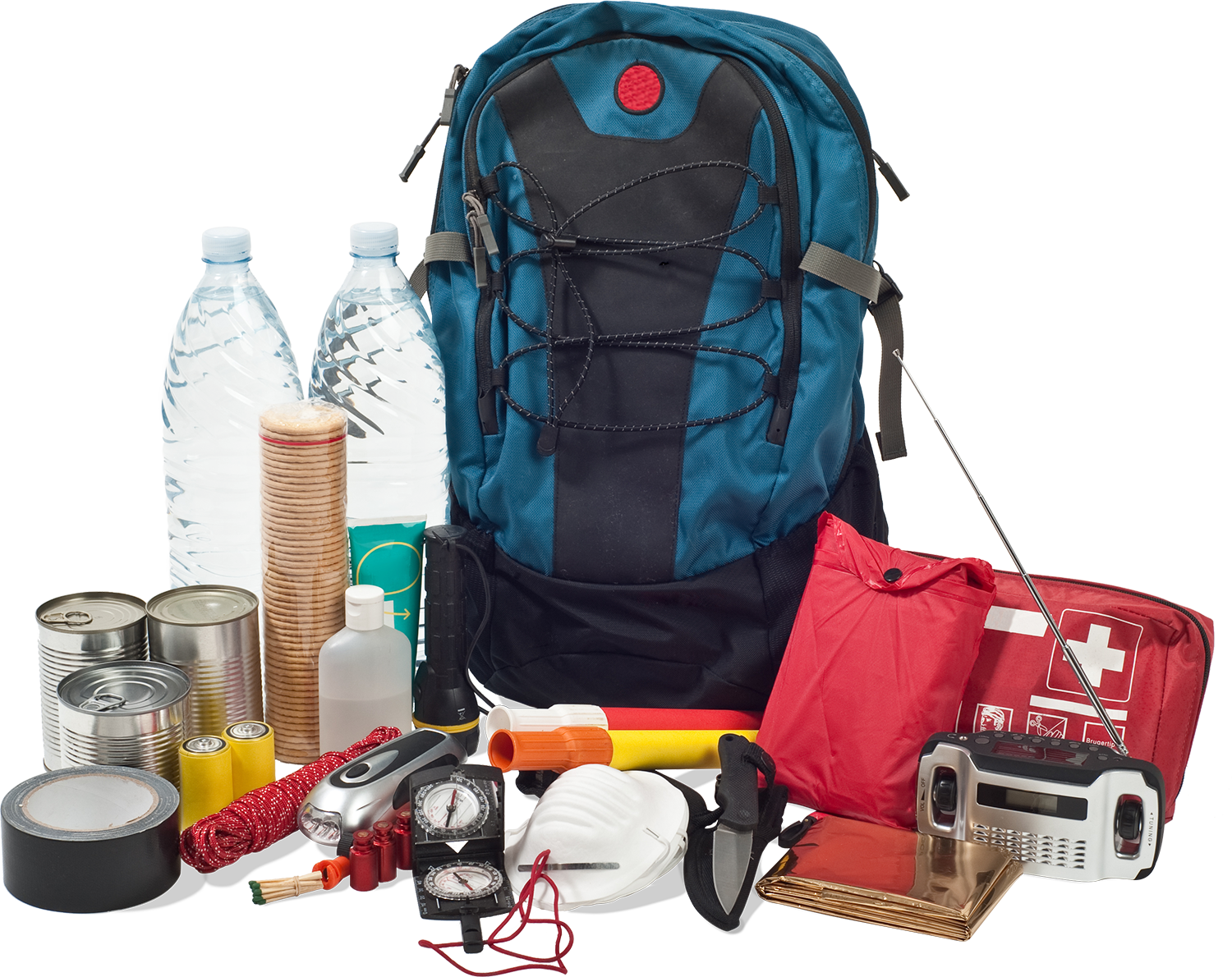Some disasters may be caused by human interference, either by accident or intention. Some of these situations include explosions, hazardous materials, and terrorism. Here’s how you can prepare:
Attacks in Public Places
Domestic and/or foreign attackers may use firearms, vehicles, explosives and other weapons to cause mass casualties, costly damage and considerable disruption.
- If you see something, say something. Report suspicious packages and strange behaviors to local authorities.
- Be aware of your surroundings and note places to hide and the location of exits in places you frequent.
- Run, hide, fight. Getting to safety is the priority. If you can leave the area, do so. If you cannot, find a place to hide. Fight only as a last resort.
- When law enforcement arrives, stay calm, keep your hands visible and empty, and follow instructions to safety.
- Protect your mental health. If needed, seek help for you and loved ones to cope with trauma.
Biological, Chemical & Radiological Releases
Biological and chemical agents may be weaponized and released to inflict harm on people, animals and food sources.
- Bacterial substances generally take the form of bacteria, viruses, and toxins and may be spread from person to person, infected animals, and/or through airborne particles.
- Chemical substances are released as vapors, aerosols, liquids, and solids, but are less likely to inflict mass harm because they dissipate quickly.
- Radiological releases utilize dispersion, which combine a conventional explosive device with radioactive material, which scatter dangerous, sub-lethal amounts of radioactive material over a general area. In the event of a radiological impact, remember to Get Inside, Stay Inside and Stay Tuned.
- Follow evacuation or shelter-in-place orders issued by local authorities. If you suspect you have been exposed to a biological or chemical agent, seek medical attention immediately.
- Consider adding duct tape, scissors, and plastic sheeting to your emergency kit to cover doors, windows, and other sources of ventilation, in the event you are asked to shelter in place.
Civil Unrest
The First Amendment protects your right to assemble and protest, peacefully. Most of the time, those assemblies happen without incident, but sometimes things get out of hand. Here’s how you can keep the peace.
- Keep your cool. Everyone has the right to free speech. Do not let intellectual disagreements turn physical.
- If disorder has erupted, cooperate with authorities. Stay home, if possible, and avoid areas of concern.
- Stay tuned to local news, and reference trusted media resources from local authorities.
- If you are caught in a demonstration and cannot safely drive away, stay in your car, when possible, for protection.
- If you need to leave your home, take your emergency supplies and reunite with family members according to your plan.
Explosion
Explosions can be caused by industrial materials or tools, unsafe conditions, or by intention.
- Use caution when working with unstable or dangerous industrial materials. Properly maintain appliances and machinery that utilize fuel.
- If you receive a bomb threat, stay calm and try to get as many details as possible about appearance, location, and triggers.
- Mysterious packages should be treated with caution. Do not open poorly wrapped, oddly shaped, and/or unaddressed packages and letters. Get to a safe location and alert local authorities.
- During any part of or immediately following an explosion, seek protection from falling debris. When safe to do so, quickly exit, taking care to avoid damaged floors and stairways.
- Nuclear explosions cause widespread casualties and damage from the initial blast and lingering radiation. Click here for tips on how to protect you and your loved ones in the event of a nuclear explosion.
Hazardous Materials
Dangerous substances may be found in our homes, industries, and traveling through our county on roads and railways. They may be chemical, biological, radiological, or naturally occurring substances. Releases and spills can take place during production, storage, transportation, use, or disposal. Here’s how you can take steps to be ready:
- Always store, use and dispose of household or industrial chemicals according to directions. For information on proper disposal, click here.
- Report spills to the proper authorities. Call 911 to report a hazardous materials incident.
- If you encounter unknown spilled liquids or airborne mists, cover your nose and mouth and leave the area.
- Follow evacuation or shelter-in-place orders. Depending on the substance and the weather, it may be safer inside. Close doors, windows, and vents until an all-clear is given.
- Follow repopulation and/or decontamination instructions from local authorities and seek medical treatment for unusual symptoms.
Resources
Ventura County Nuclear Safety Education Guide
Ready.gov - Radiation Emergencies
Infographic: Where to Go in a Radiation Emergency
Adónde Ir En Una Emergencia Por Radiación
National Threat Assessment Center Study
Homeland Security Advisory System
Joint Regional Intelligence Center (JRIC)
Active Shooter Guide for People with Disabilities
If you see something,
Do Something.
According to recent reports from the National Threat Assessment Center, individuals who carried out public attacks had similarities, such as recent personal or financial loss, problems at work or school, and/or law enforcement contact. Most of these perpetrators also drew some concern from others before the attack. Early intervention may result in prevention. If you observe behaviors, communications, or actions of concern from family, friends, acquaintances, or even strangers, ask for help from local authorities or behavioral health agencies.
Ventura County stands with the victims and families of the Borderline Tragedy on November 8, 2018.


Get Started on Your Emergency Kit
Don't wait until an emergency happens, when it's too late! Ready Ventura County makes it easy for you to create a kit that's just right for your household. Use our plan builder to get started today.
